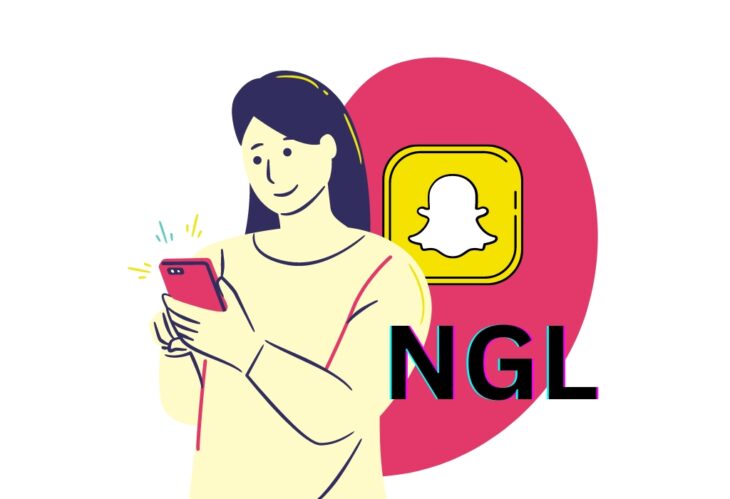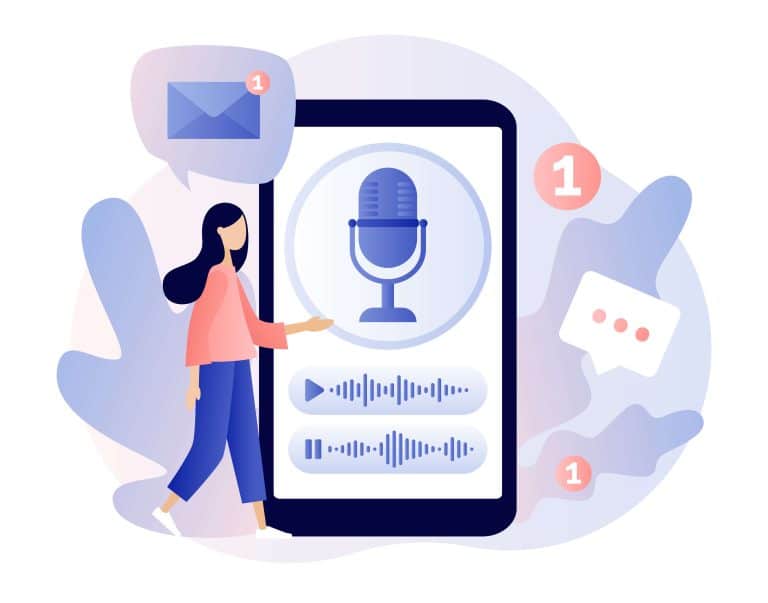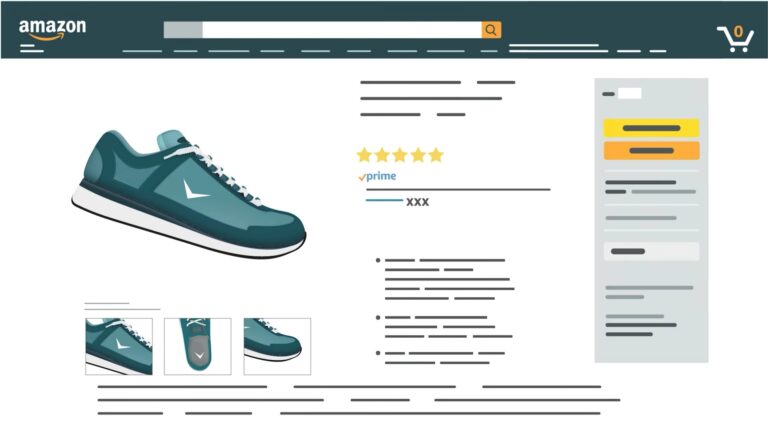In today’s digital age, the way we communicate is constantly evolving. Acronyms and abbreviations have become an integral part of our online lexicon, making conversations quicker and often more expressive.
One such acronym that has gained significant traction is “NGL,” an abbreviation for “not gonna lie.” This phrase has become a beacon of sincerity amidst the sea of online interactions, allowing users to express genuine feelings or opinions.
This guide focuses on the term “NGL” and discusses its use, importance, and various uses on social media, especially on platforms like Snapchat. It explains how “NGL” is employed to share controversial viewpoints, express genuine emotions, and start open discussions.
Additionally, we will provide tips for using “NGL” effectively and answer common questions. Get ready to understand the subtle meanings behind this popular acronym and how it influences our digital conversations.
“NGL” in Digital Conversations
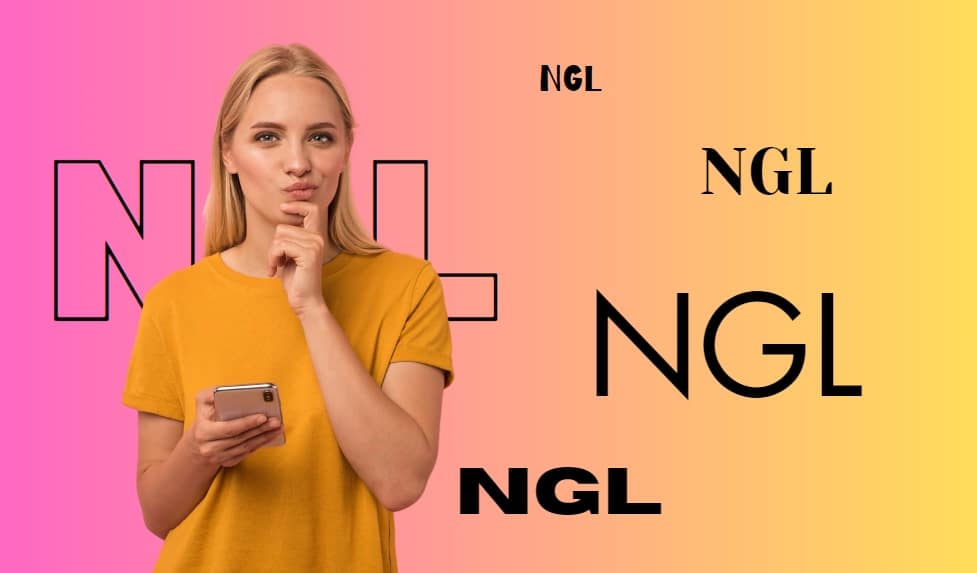
Have you ever been in the middle of a chat, your fingers flying over the keyboard when you come across the acronym “NGL”? If you’ve seen it, you’re part of a vast majority.
This abbreviation, which stands proudly for “not gonna lie,” has woven itself into the very fabric of our dialogues and slang. It’s like a digital badge of candor, signaling that the user is about to share something genuine, even if it’s a tad uncomfortable or against the grain.
The beauty of NGL lies in its adaptability. It’s not just a mere acronym; it’s an emotion, a sentiment. Whether you’re on the verge of a confession, voicing an unpopular opinion, or simply want to stress a point, NGL is there, offering a preface of authenticity.
This versatility is precisely what has catapulted it to popularity in the digital realm.
What Does NGL Mean?
At its core, “NGL” is a straightforward abbreviation. But beyond its literal meaning, it carries the weight of sincerity in the digital age.
It’s like a virtual hand on the heart, a promise that the following statement is devoid of pretense. Consider these scenarios:
- You’ve just finished a TV series marathon, and while everyone’s raving about it, you didn’t find it that impressive. So, you type, “NGL, I found the series pretty overrated.”
- Or perhaps you’ve tried the latest trending dessert, and while it looks Instagram-worthy, the taste didn’t match up. You might say, “NGL, it looked better than it tasted.”
In both instances, NGL serves as a buffer, softening the blow of an opinion that might go against the popular sentiment. It’s a way of saying, “I’m about to be brutally honest, but it’s my truth.”
NGL on Snapchat

Snapchat, the social media platform famed for its fleeting stories and innovative filters has become a hotspot for the use of trendy acronyms, and “NGL” is no exception. This guide will delve into the nuances of using “NGL” on Snapchat, ensuring you’re in the know and using it aptly.
Snapchat’s Affair with NGL
Snapchat’s dynamic and youthful user base has always been quick to adopt the latest slang and acronyms. “NGL” has found its place among these, seamlessly integrating into the Snapchat lingo.
Initiating Conversations
When you’re about to spill some tea or share a candid thought on Snapchat, starting your snap or message with “NGL” is akin to rolling out a red carpet for your revelation. It’s a heads-up, a nudge to your friends that something genuine, perhaps even juicy, is about to be shared.
Underlining Genuine Emotions

Snapchat is all about sharing moments and emotions? When you want your feelings to stand out, “NGL” can be your go-to.
It’s like adding an exclamation mark to your sentiments. Whether you’re raving about an unforgettable concert or expressing your undying love for pizza, “NGL” ensures your message is received with the weight of sincerity it deserves.
Posing Questions with Authenticity
We’ve all had moments of hesitation before asking certain questions, especially when seeking genuine feedback. By prefixing your question with “NGL,” you’re signaling a desire for an unfiltered, honest response.
It’s a way of saying, “Give it to me straight, no sugar-coating.”
Tips and Takeaways
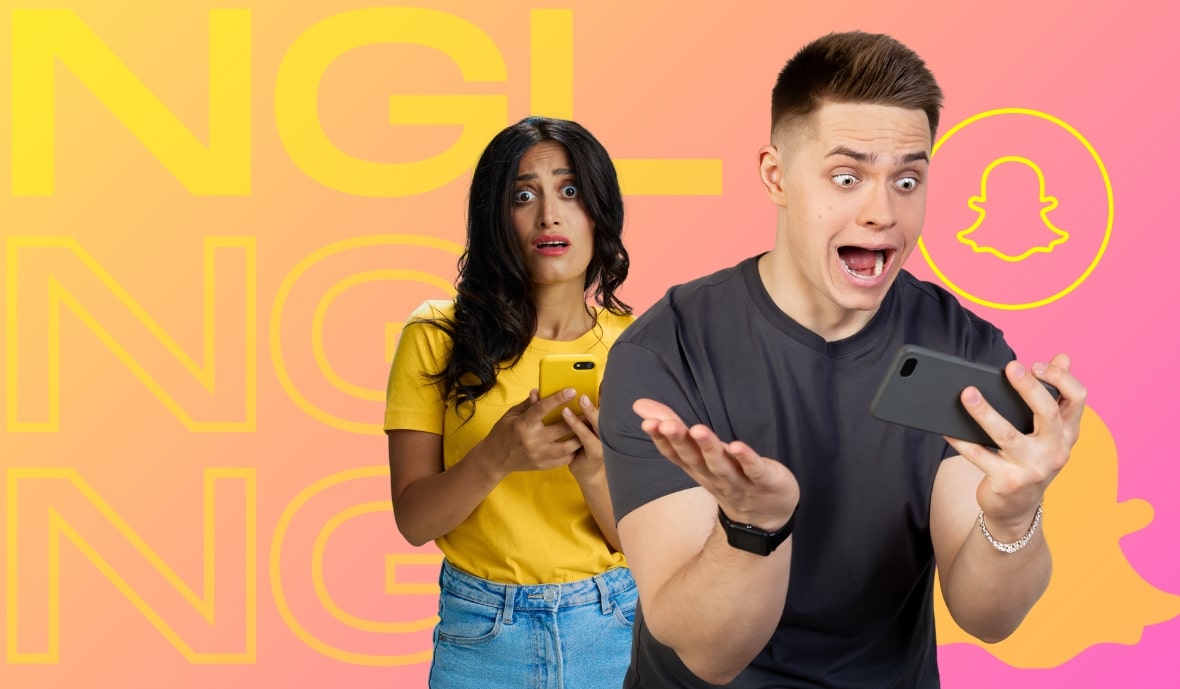
Striking the Right Balance
While “NGL” can add authenticity to your chats, remember that moderation is crucial. Just like any spice, a pinch can enhance the flavor, but too much can overpower it.
Overusing “NGL” might make it lose its genuine touch.
The Importance of Context
Always be mindful of the context in which you’re using “NGL”. It’s meant to preface honesty, not to justify negative or hurtful remarks.
Think of it as a tool to enhance sincerity, not as armor to shield insensitivity.
Emphasize with Care
“NGL” is a great way to stress a genuine feeling or opinion. However, it’s essential to ensure that while emphasizing, you’re not coming off as rude or inconsiderate.
The goal is to be candid, not confrontational.
FAQ
Is NGL rude?
NGL can be rude if it’s used in a mean or hurtful way. However, it’s also a way of being honest and upfront with your friends.
Ultimately, it’s up to you to use NGL in a way that is respectful and considerate of others.
How should I use NGL in a professional setting?
It is generally not advisable to use NGL in a professional setting. It is considered informal language and may not be appropriate in a more formal context.
What is the difference between NGL and TBH?
NGL and TBH are both acronyms that are used to preface a statement that the speaker is not lying about. However, there is a subtle difference between the two.
NGL is more straightforward and to the point, while TBH is more playful and informal.
In A Nutshell
“NGL” stands as a testament to how language adapts to the times. It’s a reflection of the digital era’s spontaneity, where communication is rapid, and authenticity is prized.
As we traverse the ever-changing landscape of digital communication, it’s essential to remain open to new expressions and the nuances they bring. In essence, “NGL” is more than just a trendy acronym; it’s a symbol of our times, capturing the essence of candidness and the evolving nature of communication in the digital age.
Embrace it, understand it, and use it wisely. After all, language is a powerful tool, and “NGL,” it’s always evolving.
